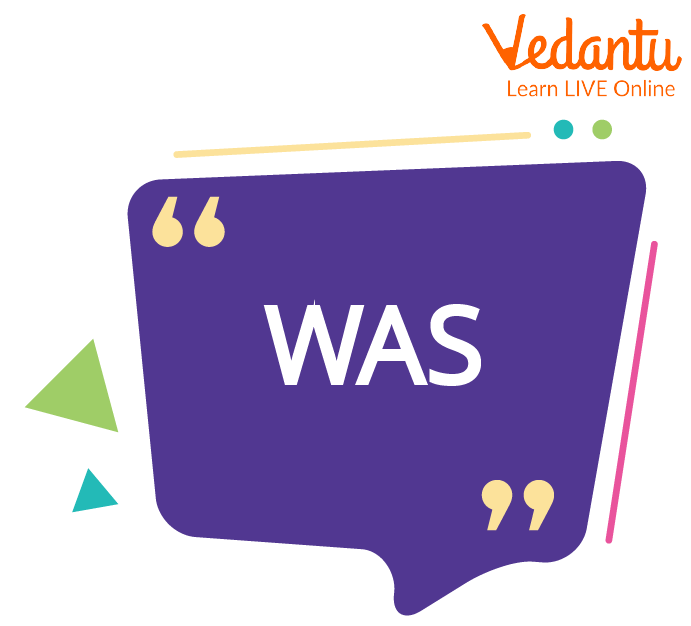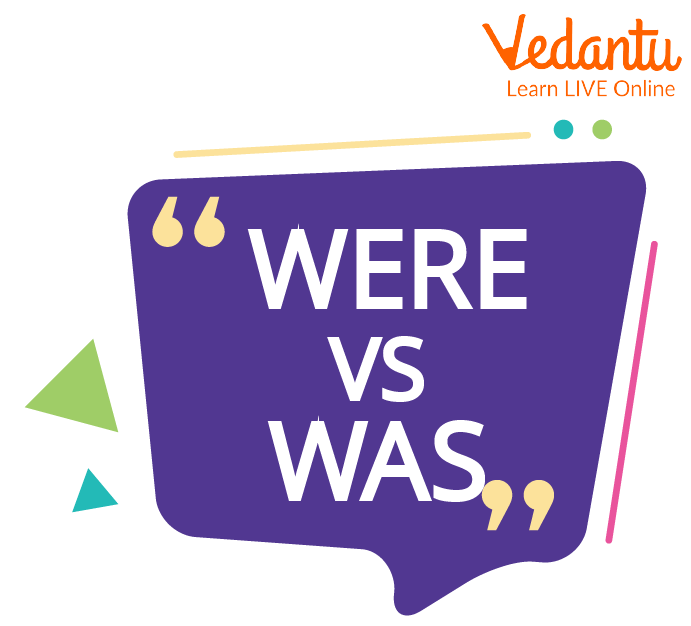Key Concepts and Practice with Was and Were for Class 3 CBSE (2025-26)
FAQs on Learn Was and Were Easily: English Grammar Guide for Class 3 CBSE (2025-26)
1. What is the main difference between using 'was' and 'were' in sentences for Class 3?
The main difference is based on whether the subject of the sentence is singular or plural. You use was when talking about one person or thing in the past (a singular subject). You use were when talking about more than one person or thing in the past (a plural subject).
2. When should we use 'was' with pronouns like I, he, she, and it? Can you give some examples?
According to the English grammar rules for the 2025-26 syllabus, was is the correct past tense verb for singular subjects. You should use it with pronouns like I, he, she, it, and any single noun.
- He was happy to see his friend.
- She was reading a book yesterday.
- The dog was sleeping on the mat.
3. When is 'were' used with pronouns like you, we, and they? Please provide examples.
You should use were for plural subjects when talking about the past. This includes the pronouns we, they, and plural nouns like 'the children' or 'the birds'. The pronoun you also always uses 'were', even if it refers to just one person.
- We were playing in the park.
- They were the winners of the match.
- You were right about the answer.
4. Is 'were' ever used with 'I'? If so, in what kind of sentences?
Yes, there is a special case where were is used with 'I'. This happens in sentences that talk about imaginary situations or wishes, not things that actually happened. For example: "If I were a superhero, I would fly." In this sentence, you are only imagining being a superhero.
5. Why is it important for Class 3 students to learn the correct use of 'was' and 'were'?
Learning to use was and were correctly is very important as it is the foundation for speaking and writing about the past. It helps you to form clear sentences, tell stories about what has already happened, and improves your overall English grammar skills to communicate your ideas effectively.
6. Can we use the third form of a verb, like 'eaten' or 'broken', with 'was' and 'were'?
Yes, you can use the third form of a verb (also called the past participle) with was and were. When you do this, it often shows that the subject of the sentence did not do the action, but had the action done to it. For example, in the sentence "The cake was eaten," the cake didn't do any action; someone else ate it.



























